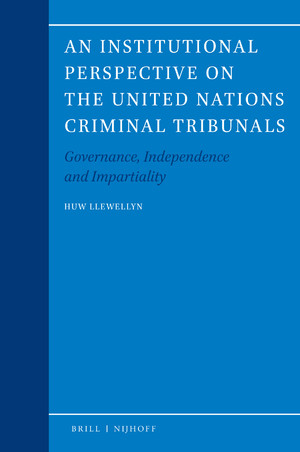
Huw Llewellyn offers a comparative institutional analysis of the five United Nations criminal tribunals (for the former Yugoslavia, Rwanda, Sierra Leone, Cambodia and Lebanon), assessing the strengths and weaknesses of their institutional forms in supporting the governance, independence and impartiality of these pioneering criminal justice bodies. Largely overlooked in the otherwise comprehensive literature on international criminal justice, this book focuses on "parenthood", "oversight" and "ownership" by the tribunals' governing bodies, concepts unnecessary in national jurisdictions, and traces the tension between governance and judicial independence through the different phases of the tribunals' lifecycles: from their establishment to commencement of operations, completion of mandates and closure, and finally to the "afterlife" of their residual phase.